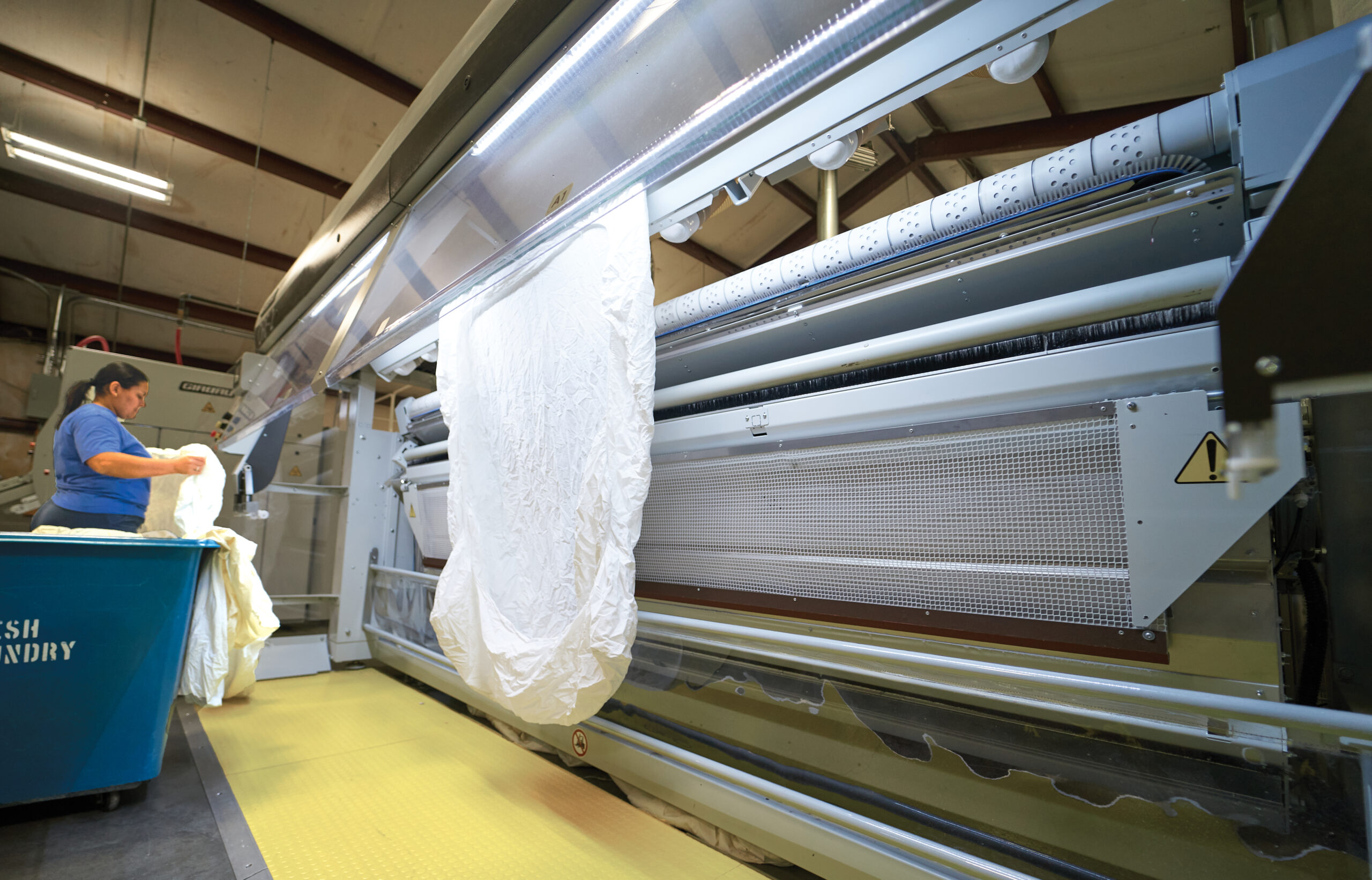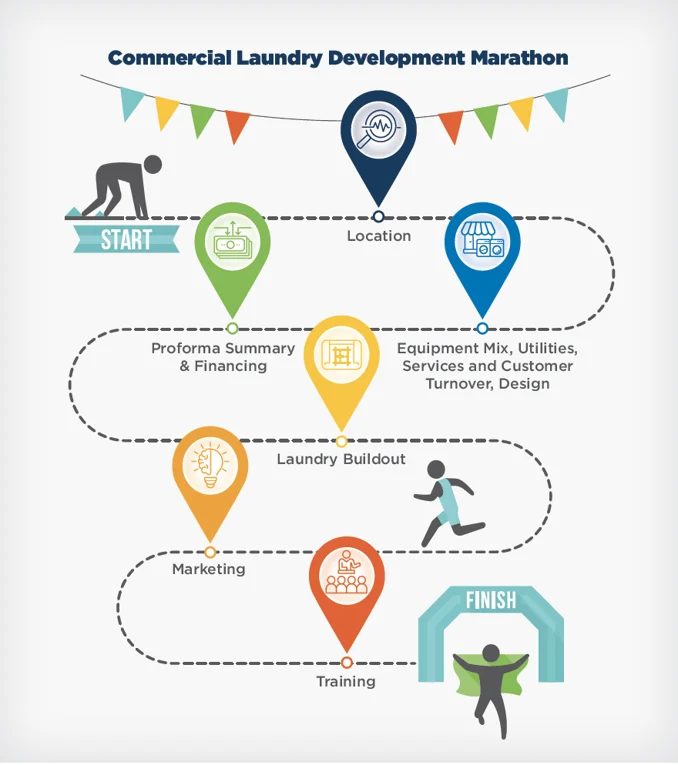As a commercial laundry investor, wouldn’t you like to be as certain as possible that your money and efforts result in a successful, profitable outcome? As you look to invest in an existing commercial laundry or develop a new one from scratch, there are multiple critical factors to consider that will ultimately shape your business’ success. Go in knowing that a versatile laundry has many benefits. It can serve multiple markets, including hospitality, vacation rental, fitness clubs, party rental and healthcare, and is, therefore, better protected from economic downturns that impact one market but not the others.
Remember, commercial laundry development is not a sprint, it’s a marathon and you need to partner with a full-service, high-quality team of experts. Read on to see how a quality distributor, manufacturer and architect work together with you to turn your vision or plan into a viable, profitable reality.
Location
Early on, you’ll need to evaluate any potential sites for your commercial laundry for suitability and conduct a target market study. Your distributor will help with both. When evaluating sites, consider whether they offer proper clearances, egress, docks, overhead doors, quick access to highways, available utilities and room for growth. Some equipment distributors can assist with building lease or purchase negotiations, as well. Once a site looks solid, your distributor should help estimate your laundry’s sales potential by applying value to your target market study, competition, equipment mix and utility costs, etc. Many times, new commercial laundry owners have already secured key accounts in their area.
Equipment Mix, Utilities, Design
Once the location is a go, you’ll work with your distributor and equipment manufacturer to equip your laundry with smart and affordable production automation for labor efficiencies. They should take you through equipment sizes, types and performance levels while factoring in criteria like versatility, utility efficiency, automation, labor and quality. Together, you’ll plan for the equipment, workflow and space for serving everything from hotels and vacation rentals to hospitals. Remember, by serving different markets you’ll better penetrate your delivery area and serve a wider variety of customers, generate bolstered revenue, and better utilize employees. Finally, your distributor should provide detailed line drawings of the laundry.
Proforma Summary & Financing
At this step, your equipment manufacturer or distributor can take all this data and generate a plant cash-flow proforma. This is a financial statement that overviews a new laundry’s capital outlay, return on investment, income, taxable income, losses, expenses, and more. This summary is essential to securing favorable financing and is submitted along with a detailed laundry site plan, target market study and equipment proposal to lenders by your distributor. As a side note, most distributors work with lenders familiar with the laundry business, which often becomes critical to getting funded. This lender becomes a key partner, just like the distributor.
Laundry Buildout
Once financing is approved, you and your distributor will typically engage an architect and a general contractor to perform the necessary plans, process for permits and build out your space. The general contractor coordinates subcontractors and your distributor provides all your equipment and needed ancillary items.
Marketing
This is the point where you start marketing your new commercial laundry. Some distributors can help you in this arena, as well. If you’re lucky, your distributor might partner with an advertising agency that specializes in commercial laundries and offers affordable marketing packages. If so, you might gain access to help with branding and logo development, signage, a website and vehicle wraps.
Training
When the laundry is complete — or nearly complete — some distributors and equipment manufacturers provide training on maintaining equipment, operating machines and programming machines. Most will gladly share their knowledge. Some distributors offer hands-on training as well as offering preventative maintenance schedules and service contracts. After all, they want you to be successful.
Finally, your distributor business partner should always be looking for ways to help improve your business’ profits — even 2, 5, 10 and 15 years down the road!


